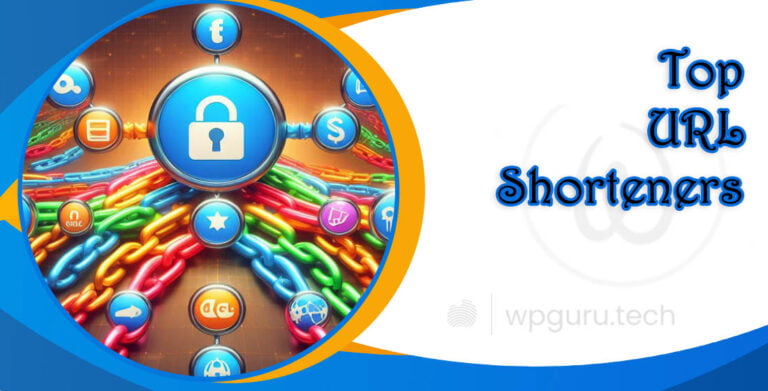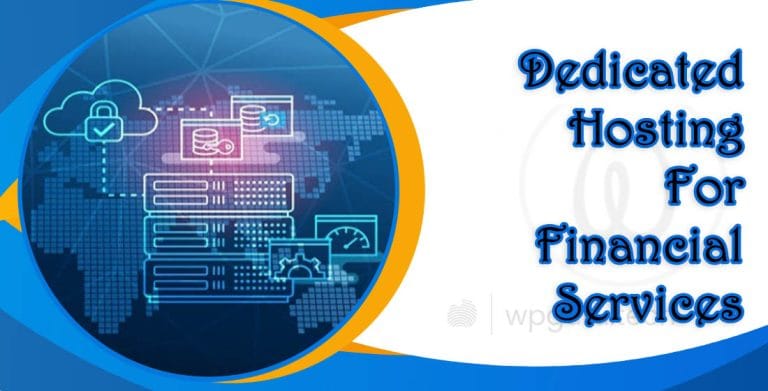Understanding CRM: Boost Efficiency and Customer Satisfaction
CRM tools are basically an all-in-one system to help businesses better manage their relationships with prospects, leads, and existing customers. Think of it as a digital command center for your sales and customer outreach efforts.
Table of Contents
With a solid CRM in place, you can easily collect and store all those important contact details, notes from conversations, deals in the pipeline – everything you need to nurture relationships effectively. But it doesn’t stop there!
These nifty systems also allow you to automate parts of your sales process like email campaigns, appointment scheduling, and other repetitive tasks. That means more time focused on actual selling instead of getting bogged down in admin work.
Plus, most CRMs pack powerful reporting and data visualization capabilities. With all your customer data consolidated, you can analyze trends, understand what’s working (or not), and make smarter decisions to boost sales performance.
The bottom line? A well-implemented CRM acts as a growth engine for your business. By organizing all your customer interactions and sales activities in one streamlined system, you’re able to provide a top-notch experience that keeps leads engaged and customers coming back for more.

What can a CRM do?
A CRM isn’t just a fancy digital address book – it’s a powerful relationship-building machine for your business. These tools empower your team to dazzle prospects and keep customers feeling the love from first interaction to final purchase and beyond.
at its core, a CRM is all about data – the details on your contacts, their interactions with your company, where they’re at in your sales cycle, and more. But it takes that data and transforms it into actionable insights to nurture relationships more effectively across your sales, marketing, and customer support teams.
For sales folks, a CRM is game-changing. You can map out your entire sales process and automatically move leads through the pipeline based on their latest interactions. No more juggling spreadsheets or forgetting key follow-ups. Automated email sequences, meeting booking, rep assignments – it’s all there.
Marketers live for the automation powers too. Design campaigns that nurture leads through tailored email journeys and social outreach. Analyze what’s driving conversions. Sync data across all your marketing platforms seamlessly.
And let’s not forget customer support’s role. A CRM provides a single unified view of every customer inquiry and touch point. No more rat-mazing through dozens of tools to get the full context. You can automate ticket assignments, track resolutions, and deliver delightful “I got your back” service.
The real magic happens when you combine all these capabilities. Visualize the full customer lifecycle through in-depth reporting and analytics. Integrate with your accounting, ecommerce, and other core systems. Even tie marketing efforts directly to closed revenue with fancy attribution reporting.
Basically, a CRM is mission control for managing relationships and growth across your entire business. It whips your processes into shape and serves up insights to keep your customers feeling cherished at every step.
Why is CRM software important?
Imagine being a mind reader who can tap directly into what your customers and prospects really want. That’s essentially the superpower a good CRM system gives your business!
At its core, a CRM pulls together all the important data about your customer interactions – every email, call, meeting, purchase, you name it – and consolidates it into one tidy centralized hub. No more frantically digging through scattered notes and inboxes to piece together the full picture.
With that comprehensive view, your sales team can easily track every movement a prospect makes through your pipeline and understand their unique wants and needs. Marketers can precisely target campaigns based on real behavior patterns. And customer support gets the full backstory to provide more personalized, delightful service.
More than just storing data, a CRM allows you to analyze those interactions and spot trends and opportunities. Maybe you notice certain lead sources consistently convert better than others. Or perhaps you identify bottlenecks in your sales process that are costing you deals. With those insights, you can continually optimize your strategies and outmaneuver the competition.
Without a CRM, businesses are basically flying blind when it comes to their customers. It’s like trying to have a coherent conversation while covering your ears – you’ll inevitably miss crucial context and misread signals. No bueno for building long-lasting relationships that drive sustainable growth.
Think of a CRM as giving your business complete x-ray vision into the customer mind. When you deeply understand their motivations, pain points, and patterns, you can dazzle them at every turn of the journey and keep them fiercely loyal. That’s the key competitive edge that separates the growth-getters from the also-rans.
Benefits of CRM
Keeping All Your Ducks in a Row
Imagine the nightmare of juggling customer details across multiple spreadsheets, inboxes, and random sticky notes. With a CRM, you have a single, centralized hub for storing all data and interactions with prospects and customers. No more endless clicking between apps or accidentally dropping critical details through the cracks. It’s organizational nirvana!
Automating the Basic Stuff
As a business owner or sales pro, you’d much rather focus energy on high-impact activities like connecting with customers than getting bogged down in repetitive administrative tasks, am I right? CRMs allow you to automate all sorts of processes – from lead routing and email drip campaigns to data entry and reporting. Let the robots do the grunt work while you get back to what you do best.
Providing Exceptional Service
We’ve all experienced the frustration of having to re-explain our situation to multiple reps at a company. With a CRM, your teams have a comprehensive view of every interaction and transaction in the customer journey. That means providing seamless, informed, and ridiculously personalized service that’ll make clients feel like the VIPs they are.
Spotting Trends and Growth Opportunities
CRMs go way beyond just storing customer data – they turn that information into smart business intelligence. With robust reporting and analytics, you can identify your most valuable lead sources, forecast sales projections, pinpoint process bottlenecks, and optimize your strategies accordingly. It’s like having a crystal ball to see what’s working, what’s not, and where to best focus efforts.
Accelerating Team Alignment
By consolidating customer data, communication streams, and processes into a shared system, a CRM aligns every customer-facing team – from sales and marketing to customer support. No more territorial infighting or operating in silos. Everyone stays solidly on the same page to deliver a consistently stellar experience.
At the end of the day, a quality CRM is like an all-star assistant and strategic advisor rolled into one. It seamlessly manages the nuts and bolts while providing you with high-level guidance to attract more customers, close more sales, and foster loyalty that keeps them coming back for more. Who wouldn’t want that kind of leg up on the competition?
Different types of CRM
You know how there always seems to be a million different processes and workflows to juggle when managing customer relationships? Enter operational CRMs – these powerful systems are designed to bring order to that chaos.
An operational CRM is like your business’ behind-the-scenes command center. It centralizes and automates all the nitty-gritty day-to-day processes involved in sales, marketing, and top-notch customer support. We’re talking contact management, pipeline tracking, email marketing sequences, support ticketing – you name it.
Instead of having dispersed info and repetitive tasks strewn across dozens oftools and spreadsheets, an operational CRM consolidates it all in one tidy place. You can map out your entire sales cycle, qualify and route leads, automate tedious activities, and stay laser-focused on the high-impact work.
Operational CRM systems
The true beauty lies in how operational CRMs enable you to design and optimize your processes to fit your unique business needs. Customized pipelines, automated workflows based on triggers, integrations with your other critical systems – it’s likeBuilding Your Dream Ops Machine™.
For teams, that translates into less time drowning in admin drudgery and more energy devoted to delivering knockout customer experiences at every stage of the journey. An operational CRM is the ultra-efficient sidekick that keeps everyone marching together towards closed deals and happy customers.
So if chaos, disorganization, and repetitive hairpulling activities are slowing your business down, an operational CRM could be the project management gamechanger you need. It brings all the moving peopley parts into a harmonious, well-oiled machine.
Analytical CRM systems
Analytical CRMs are like having a crystal ball into the minds of your customers and prospects. These bad boys harness the power of data to provide deep insights into behaviors, preferences, and what really makes people tick.
Rather than just storing contact details, analytical CRMs take things to the next level with advanced reporting, predictive analytics, data mining, and other fancy data wizardry. They gather intel on every customer interaction and transaction, then slice and dice that info in meaningful ways.
Need to forecast sales more accurately? An analytical CRM can analyze historical pipeline data and deal patterns to give you a clear view into the future. Wondering which marketing campaigns are actually driving ROI? It breaks down the numbers to pinpoint your top lead sources.
The possibilities are endless with lead scoring, customer lifetime value projections, churn risk identification – you can even get predictions around which products or services a customer is most likely to buy next. Talk about having a huge strategic advantage!
Analytical CRMs are really about turning data into actionable intelligence to guide decision making. They illuminate the why behind customer actions so you can tailor experiences, allocate resources wisely, and stay ahead of the curve.
For companies that live and breathe numbers and data-driven strategies, an analytical CRM is an absolute must. It takes the guesswork out of understanding your customers and shows you exactly where to focus efforts for maximum business impact.
Collaborative CRM systems
You know how it often feels like your sales team operates in a completely different universe than marketing or customer support? A collaborative CRM is designed to tear down those stubborn organizational silos and get everyone singing ‘kumbaya.’
These CRMs are all about facilitating open communication and easy information sharing across all customer-facing teams. Instead of cada departamento doing its own thing with disparate tools and fragmented data, a collaborative CRM creates one unified hub.
Within the system, reps can easily view and update details on any customer interaction – from initial marketing outreach, to sales pipeline moves, to support inquiries. A centralized communication stream, shared calendars, team task boards, and document libraries keep everyone coordinated.
But collaborative CRMs don’t just preach transparency and alignment – they bake it right into the fabric of your processes through slick visualizations of workflows and customer journeys. That way, everybody operates from the same up-to-date playbook tailored for prime collaboration.
With this level of organization and access to comprehensive customer intel, teams can finally break free from those productive-killing
communication breakdowns. No more crossed wires, duplicative efforts, or accidentally stepping on toes.
Sales knows exactly what marketing is doing and how to seamlessly pick up those hot leads. Support gets full context into past interactions for more personalized service. Marketers can precisely target content based on real customer needs. It’s a harmonious cycle of aligned growth efforts.
For companies struggling with internal silos stunting growth, a collaborative CRM is a powerful alliance-builder. By fostering transparency and seamless cooperation, you create consistent, ultra-satisfying customer experiences that keep people coming back.
Popular CRM systems that businesses use?
There are quite a few popular CRM systems that businesses across different industries and sizes use. Here are some of the major players in a friendly, conversational tone:
Salesforce (The O.G. Cloud CRM)
When it comes to big name CRMs, Salesforce is the iconic leader. It pioneered the concept of cloud-based customer data management way back in 1999. Today, Salesforce offers a suite of different CRM products for sales, marketing, commerce, analytics and more. Its scalable platform and ecosystem of apps/integrations make it an enterprise-grade choice for larger companies.
HubSpot (The Broad Capabilities Option)
HubSpot has evolved into a full-blown CRM platform with capabilities that extend well beyond just sales software. In addition to robust CRM functionality, it bundles tools for marketing automation, customer service, operations, and website management. This makes it an attractive all-in-one option for smaller businesses looking to have all their bases covered on one system.
Zoho CRM (The Affordable Choice)
Part of a suite of low-cost business apps, Zoho CRM aims to make robust CRM tools accessible even to cash-strapped startups and small companies. Its user-friendly interface and pricing that starts at just $14/user per month make it a popular choice for budget-conscious teams.
Pipedrive (The Visual Sales Pipeline Pick)
With a name like “Pipedrive,” you can probably guess this CRM’s core focus – helping sales teams visualize and manage their deals more efficiently. Its strengths lie in its simple, intuitive pipeline visualization and automatic data capture from emails/calls. It’s a great option for smaller sales organizations.
Freshworks CRM (The Conversation-Based System)
Freshworks CRM is built around the concept of tracking customer interactions through ongoing conversations, rather than just storing basic contact data. Its timeline view provides context across communication channels like email, phone, chat to aid in more personalized engagement.
Microsoft Dynamics CRM (The Familiar Suite Option)
For businesses already embedded in Microsoft’s ecosystem, Dynamics 365’s cloud CRM offering is a natural extension that integrates with O365, Azure, Teams and other Microsoft services & apps. It has capabilities suited for sales, customer service, field service, and more.
There are definitely other major players out there like SugarCRM, Insightly, Keap and more. But those are some of the most popular options companies turn to when seeking a customer data management solution tailored to their size and needs.
What exactly is a CRM?
A CRM, or customer relationship management system, is essentially a master database for housing all the important details about your company’s interactions with clients and prospects. It tracks everything from contact information and deals in progress to communication logs and purchase histories. But more than just storing data, a CRM allows you to analyze that information to better understand customer behavior and optimize your sales/marketing strategies accordingly.
Why does my business need a CRM?
Unless you enjoy frantically juggling client details across a dozen scattered spreadsheets and inboxes, a CRM is pretty much essential for any modern company. It centralizes customer data and provides transparency across departments so everyone operates from a unified, real-time view into the sales process. No more miscommunications or duplicating efforts. With deeper customer intelligence at your team’s fingertips, you can personalize outreach, identify opportunities, and provide awesome service that keeps buyers coming back.
Aren’t CRMs just for big enterprises?
Not at all! While large corporations do use very robust CRM systems, there are tons of simple, affordable options tailored for small businesses these days. The principles of streamlining client management, automating tasks, and leveraging data-driven insights are invaluable for companies of any size trying to accelerate growth. You don’t need an encyclopedia-sized implementation guide to reap the organizational benefits.
How much does a CRM cost?
Pricing can vary pretty dramatically between different CRM platforms and tier levels. Basic cloud-based systems may run as little as $12-$50 per user per month. But once you start adding premium functionality like AI assistance, granular permissions, custom development and integrations, costs can skyrocket into the hundreds per user. Most small businesses can find a viable option in the $50-$100 range though.
Is implementing a CRM difficult?
Like adopting any new software companywide, getting a CRM successfully up and running does require some strategic planning and change management. You’ll need to make provisions for data migration, Define clear processes and use cases, ensure full-team training and buy-in, and anticipate technical integration needs. Having a structured rollout plan overseen by leadership makes a world of difference in long-term adoption versus just haphazardly deploying a new system.
Summary
A CRM (customer relationship management) system is a centralized platform that consolidates all the data from your company’s interactions with customers and prospects. Instead of customer information being scattered across multiple tools and inboxes, a CRM stores it in one unified hub.
However, CRMs go beyond just storing data. They provide intelligent insights by analyzing customer information to reveal trends, behaviors, and opportunities. This analytical capability allows businesses to optimize strategies, personalize communications, streamline processes, and deliver exceptional customer experiences.
By aligning teams like sales, marketing, and customer service around a “single source of truth” about the customer, a CRM bridges organizational silos and eliminates duplicative efforts. Everyone operates from the same real-time customer intelligence.
The core benefits of using a CRM include improved operational efficiency through automation, enhanced customer service with full interaction histories, data-driven decision-making from robust reporting, better internal collaboration, and the ability to precisely target marketing and growth efforts.
While implementing a CRM requires upfront investments in cost, data migration, user training and change management, it ultimately provides businesses with a strategic asset for attracting, retaining, and delighting customers. A well-utilized CRM system is indispensable for driving sustained revenue growth through optimized customer relationship management.
Originally posted 2024-04-04 14:20:17.









